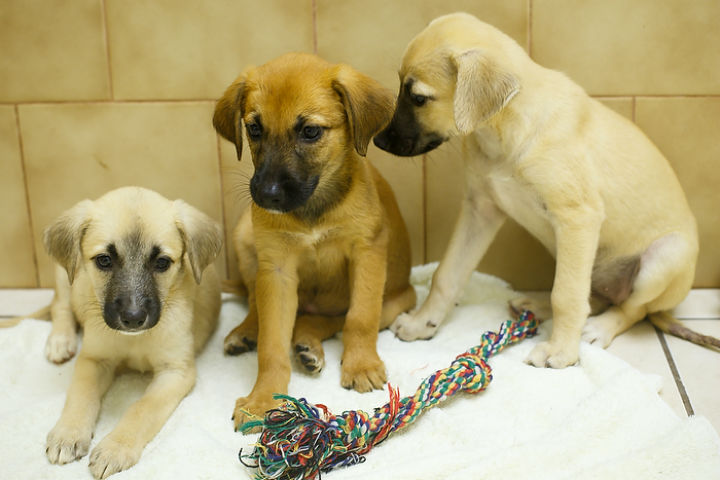Canadians hoping to travel to or from Turks and Caicos with their dog may have to reconsider which company they fly with.

WestJet is no longer allowing passengers to travel with canine companions from the Caribbean vacation destination, and that has prompted supporters of a local stray dog rescue and adoption agency to take on the Calgary-based airline.
The airline said it changed its restrictions because Turks and Caicos “declared itself rabies-free.” But, the islands have historically been rabies-free.*
It’s a major hurdle for a charity organization in Providenciales — the largest city in Turks and Caicos — that finds homes for stray dogs, often with Canadians who vacation on the tropical islands.
Laurie McCann is a Canadian volunteer with Potcake Place, which rescues feral, mixed-breed dogs – known locally as potcakes.
She said the charity organization sends about 30 adopted dogs a year to Canada, and many people have relied on WestJet for cheaper fares on flights.
“We’ve had a whole bunch of people that had booked specifically on WestJet, that were looking to come on holidays and adopt a pup, and now they can’t adopt,” she said in a phone interview from Providenciales.
She said that has led to people cancelling or delaying their plans to adopt.
- Posters promoting ‘Steal From Loblaws Day’ are circulating. How did we get here?
- Video shows Ontario police sharing Trudeau’s location with protester, investigation launched
- Canadian food banks are on the brink: ‘This is not a sustainable situation’
- Solar eclipse eye damage: More than 160 cases reported in Ontario, Quebec
There are an estimated 2,000 potcakes roaming around Turks and Caicos, according to the Dept. of Agriculture, which is a lot for a territory with just more than 32,000 people.
The charity, along with the Turks and Caicos SPCA, work to limit the potcake population. Adoptions, local and international, help to do that.
Supporters of Potcake Place started an online petition to ask WestJet to change the policy and gathered more than 1,500 signatures to present to the airline last week.
But the issue isn’t just a concern for Potcake Place. Any visitors — such as snowbirds who make the islands a second home during winter — are going to be affected if they want to travel with their pet on WestJet.
McCann told Global News she knows of about 20 people that are going to have to find people to keep their dogs on the islands when they return home to Canada for the summer. Others are having to rebook tickets with U.S. airlines.
Other airlines, including Air Canada, do not currently have any issues with passengers travelling with their canine companions.
The Turks and Caicos government doesn’t have any issue with dogs visiting — or leaving — the island either.
The territory’s chief veterinarian Dr. Mark Butler explained Turks and Caicos’ restrictions on transporting dogs to and from the islands only pertain to breeds that are prohibited from entering.
He said he has contacted WestJet about the company’s restriction, but he insists the territory’s requirements are no different than any other government’s rules.
The airline should not blame the Turks and Caicos Dept. of Agriculture for its own policy change, he said.
WestJet said it runs the risk of being held responsible if it allows animals on board that are turned away at the final destination.
“If we allow an animal without the proper paperwork to enter a country, it is the airline that is responsible for the consequences, which can include deportation (transport back to point of origin), medical costs, euthanization (in the event of illness) and fines,” WestJet spokesperson Robert Palmer said in an email to Global News.
WestJet has an annual “heat embargo” beginning May 1, meaning it doesn’t fly animals in-cargo during warmer months.
Palmer said the company would take that period, ending Oct. 31, to “evaluate whether to allow animals to be transported to and from Turks and Caicos with appropriate documentation and liability protection.”
*CORRECTION: An earlier version of this story stated “Turks and Caicos recently declared the islands rabies-free.” The chief veterinary officer for Turks and Caicos clarified the islands have historically been rabies free. This story has been updated to reflect this.






Comments